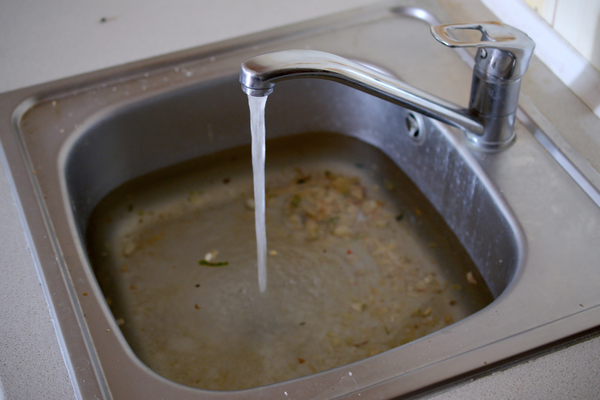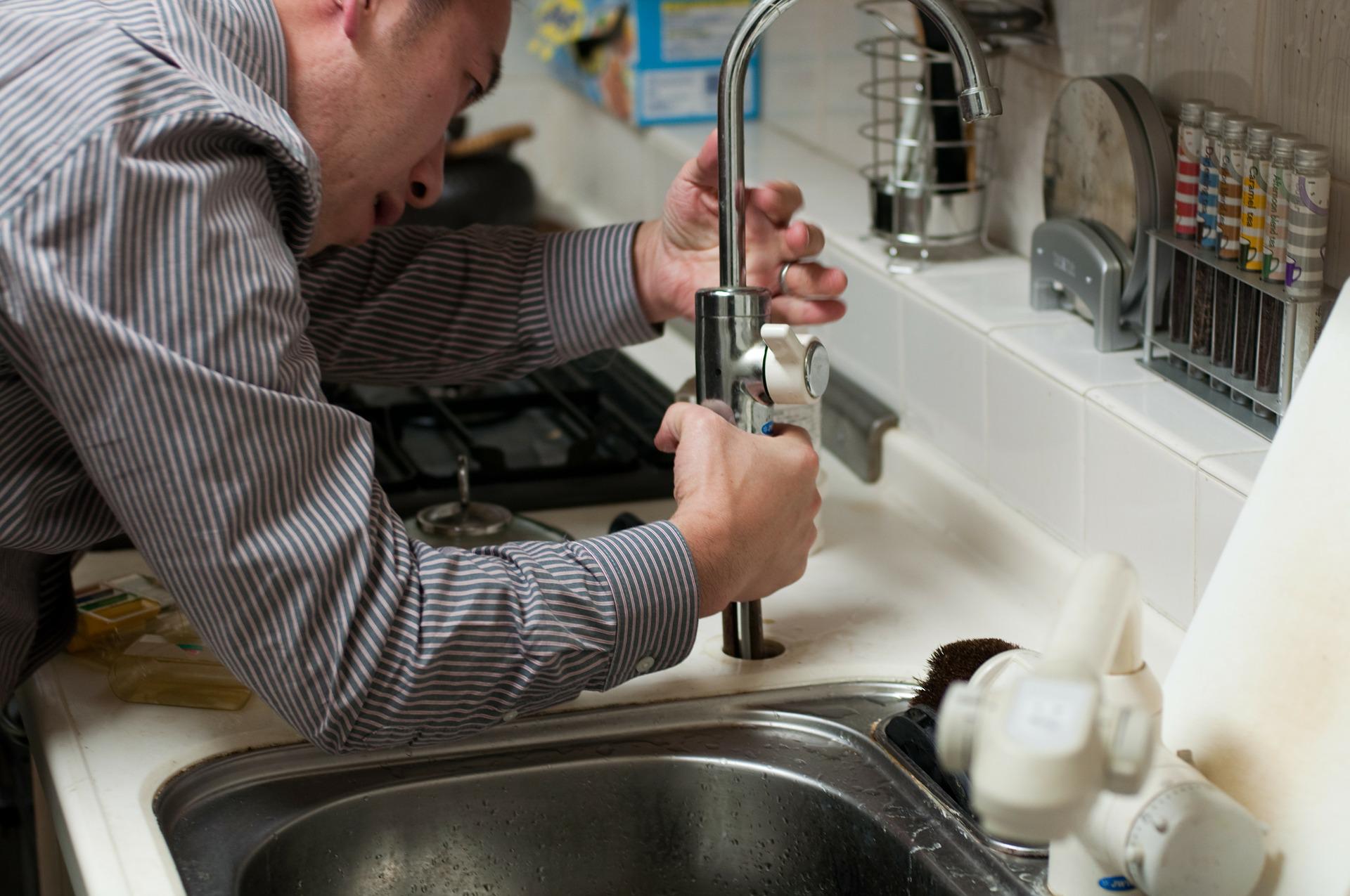Straightforward Ways To Correct A Slow-Draining Sink
Straightforward Ways To Correct A Slow-Draining Sink
Blog Article
Just how do you feel on the subject of 7 Ways To Fix A Slow-Draining Sink Before You Call A Plumber?

Intro
We have actually all been there: You're cleaning your teeth or washing your hands, and you observe the water pooling in the sink. As opposed to quickly swirling down the tubes, it lingers, turning your once-refreshing morning routine into a mini swamp scene. A slow-draining sink isn't just bothersome; it's frequently an indicator of larger plumbing problems prowling beneath the surface. The good news is that a lot of slow-draining sinks can be taken care of with a little expertise, a couple of standard devices, and some patience. Prepared to tackle this job head-on? Allow's roll up our sleeves and dive right in.
Recognizing the Sources Of a Slow-Draining Sink
Prior to you start poking around in your pipes, it helps to know what might be causing the stagnation. Understanding the root cause makes it less complicated to pick the ideal fix.
Devices and Products You'll Require
The right tools make all the distinction. The good news is, you won't need a totally stocked plumber's van to get the job done.
Step-by-Step Overview to Fixing a Slow-Draining Sink
Currently, allow's enter into the nitty-gritty. This detailed procedure will certainly assist you through straightforward methods to recover your sink's drainage.
Step 1: Get Rid Of and Clean the Stopper
Usually, the stopper (that small plug you push down to block water) is the very first wrongdoer. Remove it thoroughly and clean off any type of hair or crud entraped around its base. Rinse it thoroughly before putting it back in place.
Step 2: Utilize a Bettor to Displace Debris
Got that bettor ready? Placement it over the drain and offer it a couple of firm pumps. The concept is to create suction that can loosen up any type of obstruction. If you see little bits of particles drifting up, you're on the ideal track.
Action 3: Attempt a Drainpipe Serpent or Cord Wall Mount
If the bettor does not suffice, it's time to draw out the drainpipe snake. Gently feed it right into the drain and twist as you go. You could feel some resistance-- that's most likely the blockage. Keep turning and pulling until you get rid of the obstruction. If you do not have a drain serpent, a corrected cable wall mount can work in a pinch.
Tip 4: Apply a DIY Drainpipe Cleaner
An all-natural cleaner made from cooking soda and vinegar can break down recurring grime. Pour half a cup of baking soda right into the drain, adhered to by half a mug of vinegar. Allow it fizz for around 15 minutes, then flush with hot water. This chain reaction often does marvels for small clogs.
Step 5: Reconstruct and Check the Sink
Put whatever back together and run the faucet. Does the water now swirl down the drain at a decent speed? If yes, give yourself a pat on the back. If not, do not misery-- there are still a couple of more dress up your sleeve.
Crucial Devices for DIY Repairs
A bettor is your best starting point. A small, sink-sized bettor develops suction that can dislodge small obstructions. For even more persistent blockages, a drainpipe serpent (sometimes called a plumbing professional's auger) functions marvels. A set of handwear covers, a flashlight, and possibly a pair of protective safety glasses are likewise helpful.
Recommended Cleansing Solutions
Moderate dish soap and warm water can help break down greasy accumulation. A mixture of baking soda and vinegar is a tried and true home remedy, and enzymatic cleaners use an even more environment-friendly method. Maintain chemical drainpipe cleansers as a last resort, as they can be severe on your pipes.
Common Offenders Behind Slow Drain
So, what's blocking points up? Typically, it's a mixture of everyday debris-- think hair, soap scum, tooth paste deposit, and leftover food bits. Gradually, these tiny bits accumulate and hold on to the pipeline walls, progressively tightening the passage and making it harder for water to go through. In many cases, mineral deposits from hard water can additionally contribute to the substance, creating the excellent storm for persistent blockages.
When is it Time to Take Action?
If you see the water draining slower than common, it's a great concept to intervene faster rather than later. Waiting also long could cause finish obstructions, undesirable odors, and even pipeline damages. If the water takes greater than a few secs to clear out after turning off the faucet, consider it a warning and prepare yourself to place on your do it yourself hat.
Security First: Precautions and Preparations
Prior to you launch into unclogging setting, think of security. You're managing possibly filthy water and particles, so slip on a pair of gloves. If you're making use of chemical cleansers, make sure the room is well-ventilated and comply with the instructions on the tag.
Safety Gear and Work Space Arrangement
Put down some old towels or rags around the sink area to catch dashes. Eliminate any kind of products that could get in your way, like soap dispensers or tooth brush holders. Make sure you have great lighting-- order a flashlight if needed.
Alternative Techniques for Stubborn Clogs
Not all obstructions are created equivalent. If your sink still rejects to work together, consider these alternate remedies.
Baking Soda and Vinegar Method
We already touched on this, yet it deserves noting once again. This mild, environment-friendly method is safer than chemical cleaners and usually fairly reliable.
Chemical Drain Cleansers
Enzyme-based cleansers utilize natural bacteria to absorb raw material. They're an exceptional option if you're seeking to prevent harsh chemicals. Simply remember, they may take a bit longer to function their magic.
Chemical Drain Cleaners: Pros and Cons
Chemical cleansers can blow up via difficult blockages fast, yet they're not without drawbacks. They can generate heat and fumes, damages pipes if used excessively, and pose ecological risks. Utilize them sparingly, and always adhere to the instructions very carefully.
Preventive Measures to Keep Your Sink Flowing
Avoidance is the best treatment. By taking on a couple of easy behaviors, you can maintain your sink from slowing down to begin with.
Regular Cleansing Practices
Wipe down the sink container and fixture location on a regular basis. Remove hair or food bits before they have a chance to wash down the drainpipe.
Staying Clear Of Harmful Compounds Away
Think twice before disposing coffee grounds, oil, or coarse vegetable scraps down the sink. These offenders hold on to pipe walls, creating obstructions in time.
Routine Upkeep Checks
Set up a quick month-to-month inspection. Run hot water via the sink for a couple of minutes, taking notice of the flow. If it seems slow-moving, act quick prior to it ends up being a full-on clog.
When to Call an Expert Plumber
Sometimes, despite how difficult you try, that obstruct just won't move. That's when it's time to generate the pros.
Indications That Show a More Major Concern
If your sink drains pipes gradually despite several attempts, or if you notice water backing up in other fixtures (like your shower or toilet), you may have a more severe pipes concern prowling deeper in the system.
Stabilizing DIY Efforts with Professional Assistance
While DIY can save you money and provide a feeling of accomplishment, there's no embarassment in calling a specialist. A specialist plumber can analyze your whole plumbing arrangement, making sure there's no underlying damage or long-term issue that could cost you extra down the road.
Contrasting Expenses and Long-Term Solutions
Prior to deciding, consider the big picture. A cheap, quick fix may resolve the trouble temporarily, yet investing in a much more irreversible option can conserve you money and tension over time.
Evaluating the Expenses of DIY vs. Specialist Solutions
Do it yourself repairs typically cost little bit greater than the cost of a plunger or a container of cooking soda. Professional solutions, on the other hand, included a cost however may stop repetitive issues and costly repairs later on.
Investing in High Quality Fixtures and Upgrades
If your sink's style adds to regular clogs, it might be worth upgrading to higher-quality components or modifying the plumbing format. Consider this a financial investment in your home's functionality and convenience.
Conclusion
A slow-draining sink can seem like a minor inflammation, but it's frequently an indicator that your plumbing requires a little TLC. By recognizing the origin, employing the right devices and techniques, and dedicating to straightforward preventive measures, you can maintain your sink moving freely. And when all else falls short, never be reluctant to employ a professional-- your home's plumbing deserves the investment in care and maintenance.
Three Common Ways to Fix a Slow Drain
Baking Soda Method
Boil a full pot of water. Measure out cup of baking soda and pour it down the drain. Then take cup of the magical cleansing substance known as white vinegar and drop that down there too. Allow the mixture to fizz in the drain for five minutes as the vinegar and baking soda combine. Now dump in that whole pot of boiling water. This combination of cleaning substances should clear out anything that is causing your sink to drain slowly. If it doesn t...
Zip-It
If the baking soda method doesn t clear out your drain, it may be because a significant amount of hair and/or other debris has collected there and you need to remove it. Purchase a Zip-It tool at any home improvement or hardware store and insert it into your drain. It will catch any collected hair or debris that s blocking the flow of water. Pull it out. If it s got a big clump of hair, etc. on the end, you ve probably got your culprit.
Drain Cleaner
If these methods don t work, there is the standard drain cleaner that you can also buy in a hardware store or even your local grocery store. It s better if you can use a household solution, but these drain cleaners often work in a pinch. They re very simple to use. You generally just dump them in your drain and wait. If even this method is not effective, it may be time to call the plumber.
https://www.mrrooter.com/oneida/about-us/blog/2017/july/three-common-ways-to-fix-a-slow-drain/

We were made aware of that write-up about from a good friend on our other web blog. Are you aware of anybody else who is very much interested in Solved! How to Fix a Slow Sink Drain? Please feel free to promote it. Thank you for your time invested reading it.
Schedule Now Report this page